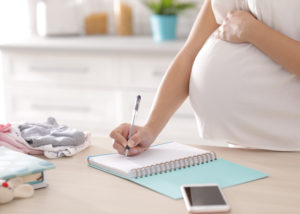Memory During Pregnancy
Many women report changes in their memory during pregnancy. Though memory loss is not reported as a usual symptom that comes about with pregnancy, empirical evidence shows that absent-mindedness among pregnant women is more common than in non-pregnant women.
Also known as “baby brain,” it refers to the changes that occur in cognitive and executive functioning, as well as in memory, due to the increased levels of sex hormones. Some explanations of memory loss attribute it to the elevated anxiety pregnant women experience, seeing as they are preoccupied with a major life change and the responsibility of a new life. Other research points to changes in the brain that prepare women for motherhood.
More specific findings suggest pregnant women experience altered spatial perception and memory, as the heightened hormones may negatively affect the neurons in the hippocampus—the part of the brain responsible for spatial memory.
What to expect?
Undoubtedly, the stress that comes with preparing for the arrival of a baby (or more than one!) is bound to contribute to absent-mindedness and some slight disorientation, especially as far as new surroundings or new information are concerned.
Stress before giving birth is to be expected, as is a decline in good mood. Some women even experience signs of depression during pregnancy, as well as shortly after. In addition to stress and a generally sad mood, these might include:
- Declined interest in fun activities
- Changes in sleep pattern, energy and appetite
- Finding it challenging to concentrate and make decisions
- Feelings of worthlessness or shame
- Questioning life’s worth
How to manage it
Though it is yet unclear whether mild depression or increased hormone levels are causing memory loss in pregnant women, it does seem to dissipate shortly after the baby has been born.
It is advised that if these symptoms persist for a long time after birth, or if you have had a history of depression, you consult your health professional.
Despite the increased anxiety that comes with caring for a newborn, expectant mothers should try to ease their mind and keep their focus sharp to the best of their abilities by engaging in activities that help them feel less stressed.

